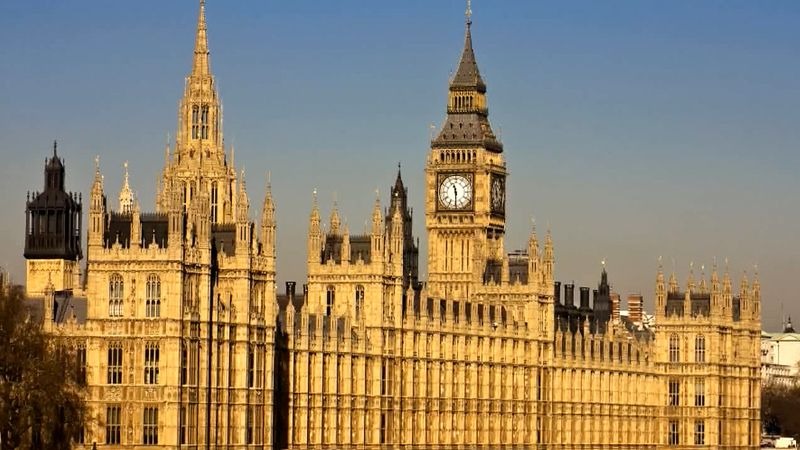Throughout history, legal systems have evolved to reflect societal needs, technological advancements, and cultural shifts. However, in many countries, certain laws have remained unchanged for decades, even when their relevance has diminished over time. These outdated regulations often stem from historical events, unique legal cases, or attempts to address specific issues that no longer apply in modern society. While some of these laws may seem peculiar today, they continue to exist, highlighting the complexities of legal evolution.
Regulating Footwear for Public Safety

In Alabama, a regulation restricting the wearing of high heels was introduced following a legal case involving a woman who sustained a foot injury after stepping on an uneven surface outside a bar. After successfully winning her case against the town, authorities enacted this statute to minimize similar lawsuits in the future. The law raises broader discussions about personal responsibility, public safety, and liability concerns for municipalities and businesses. While intended to prevent legal disputes, the regulation also highlights the challenge of balancing individual freedoms with public policies.
Population Control Through Taxation

Since 1987, China has implemented additional taxes for families choosing to have more than one child. Originally part of broader population management policies, these measures were introduced to address economic, environmental, and social challenges associated with rapid demographic growth. By imposing financial penalties on larger families, the regulation sought to encourage family planning while ensuring sustainable resource allocation. However, as population trends shift and birth rates decline, discussions continue about the long-term impact of such policies on society and economic stability.
A Nationwide Ban on Video Games

In September 2002, Greece enacted a law prohibiting video games, originally targeting gaming activities in internet cafés. Over time, the restriction expanded to include all forms of electronic gaming, sparking debates on regulation and personal freedoms. Authorities cited concerns about gaming addiction and public order as reasons for the policy. However, the law raised questions about balancing regulation with recreational activities, particularly in an era where digital entertainment plays a significant role in global culture.
Defining Unexpected Items as Weapons

Germany’s legal framework includes an unusual classification where cushions are considered “soft weapons.” This means that if an individual uses a cushion in an altercation, they could potentially face legal consequences. The regulation underscores the complexities of defining objects within legal contexts and how everyday items can take on different interpretations under specific circumstances. While this classification may appear unconventional, it reflects broader discussions on how legal systems assess intent and potential harm in various situations.
A Unique Accommodation for Expectant Mothers

In the United Kingdom, expectant mothers have historically been granted certain rights to ensure their comfort in public spaces. One such provision allows a pregnant woman to request a police officer’s helmet if there is no accessible restroom available. This regulation acknowledges the physical challenges of pregnancy and seeks to provide support in moments of need. While not commonly practiced, the provision highlights the importance of accommodating individuals in unique circumstances, reflecting broader efforts to ensure inclusivity in public policies.
Cultural Dress Codes and Restrictions

In Eswatini (formerly Swaziland), longstanding cultural norms influence regulations on attire, particularly regarding gender-specific clothing. Women are traditionally restricted from wearing clothing associated with men, and in certain cases, authorities have the power to enforce these expectations. Such regulations reflect deeply rooted cultural traditions and societal norms, although they also raise broader discussions about individual freedoms, gender roles, and the evolution of cultural practices in contemporary society.
Regulating Animal Behavior in Public Spaces

California has an unusual law that restricts animals from mating within 500 meters of a public area. While seemingly difficult to enforce, the regulation likely stems from concerns about maintaining public decency and minimizing disruptions in populated areas. It highlights the challenges of managing wildlife and domestic animals within urban settings while ensuring community standards are maintained. The law raises questions about how authorities balance natural behaviors with regulations designed to uphold public expectations.
Traffic Management Through License Plate Restrictions

In the Philippines, a traffic control system regulates vehicle use based on license plate numbers. Designed to alleviate congestion in highly populated cities, the system restricts certain vehicles from operating on specific days. For example, cars with plates ending in 1 or 2 cannot be driven on Mondays, while those ending in 3 or 4 face restrictions on Tuesdays. Similar rules apply throughout the week, with violators subject to penalties. The system reflects a structured approach to urban traffic management, aimed at reducing congestion and improving transportation efficiency in major metropolitan areas.
Traditional Customs and Family Dynamics

In Japan, traditional customs have influenced certain social expectations regarding relationships and familial hierarchy. One such practice involves an older brother having the cultural right to request the hand of his younger brother’s romantic partner, with limited opportunity for refusal. While this custom is not legally binding, it reflects longstanding values regarding family structure and respect for seniority. Such traditions highlight how cultural heritage can shape personal relationships and societal expectations, even as modern perspectives evolve.
Legislative Myths and Symbolic Laws

For years, there has been a widely held belief that it was illegal to pass away within the United Kingdom’s Houses of Parliament. This notion stemmed from the historical idea that anyone who passed away in the building would be entitled to a state funeral, as it was considered a royal palace. While this rule was often discussed, it was more of a symbolic tradition than an actively enforced law. Recent legal reviews have led to the formal repeal of such outdated notions, reflecting a move towards modernizing legislative frameworks and eliminating misconceptions surrounding historical regulations.
Leave a Reply